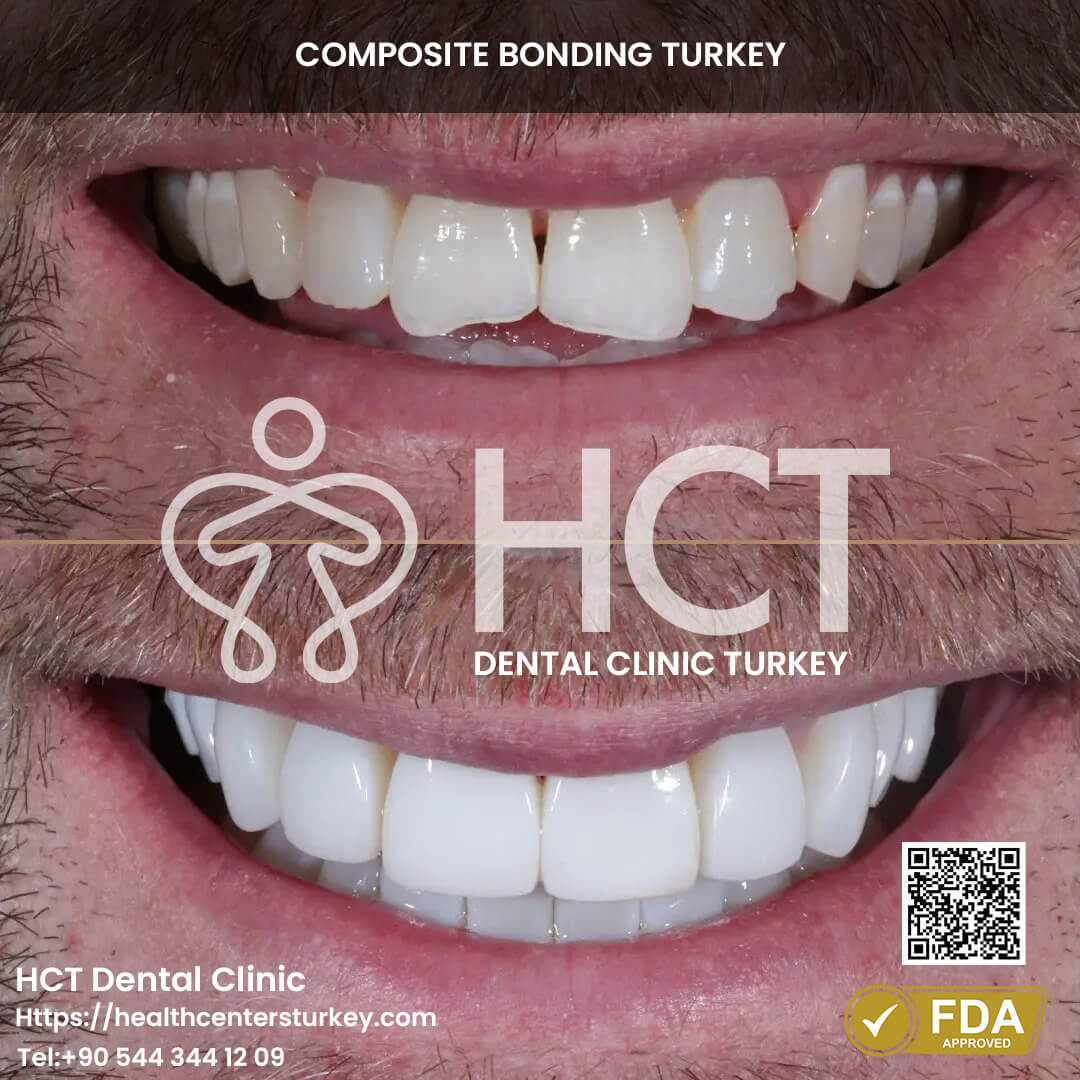Value-Driven Oral Health Veneers for Patients

Dental implants have turn out to be a focus in trendy dentistry, providing a reliable resolution for those going through tooth loss. Among the multiple advantages they offer, one vital aspect value considering is their influence on adjacent teeth. Understanding how dental implants have an effect on surrounding teeth aids in making informed choices about oral health.
When a tooth is lost, neighboring teeth can simply shift towards the area left behind. This motion can result in misalignment, which compromises the overall chunk and performance of the mouth. Dental implants mimic natural tooth roots, thereby sustaining the position of adjacent teeth.
Professional Dentists Offering Exceptional Care in Antalya, Turkey
The stability provided by an implant is crucial, because it helps in preserving not just the bodily alignment but additionally the structural integrity of the jawbone. When a tooth is missing, the underlying bone can start to deteriorate because of lack of stimulation. An implant exerts pressure on the bone during chewing, much like a natural tooth, which promotes bone health.
In some cases, a bridge or partial denture may be thought of as an alternative selection to implants. While these choices could restore some functionality, they'll place extra stress on neighboring teeth. Bridges usually require filing down the encircling teeth to accommodate the anchors, thereby affecting their health over time. Dental implants, on the other hand, do not alter present teeth, making them a more conservative selection.
Child-friendly Dental Clinics in Turkey
Hygiene turns into one other critical factor when contemplating adjacent teeth in the context of implants. With dental implants, the individual can keep an everyday hygiene routine similar to natural teeth. Flossing and brushing around the implant are simple, making certain that the gum tissue stays wholesome and minimizing the risk of gum disease that could adversely have an result on adjacent teeth.
Moreover, the supplies used in dental implants are biocompatible. This means they are designed to integrate properly with the body, reducing the probabilities of an antagonistic response. This attribute not solely makes the implant safe but also protects nearby teeth from potential issues that would arise because of contamination or infection.
In phrases of aesthetics, dental implants provide a natural feel and appear, closely resembling original teeth. Adjacent teeth benefit from this aesthetic appeal as well. When an implant is placed, the surrounding gum tissue can be shaped to imitate natural contours, thereby enhancing the general appearance of the smile. This aesthetic issue can encourage people to invest in their oral care routines, benefiting both the implants and adjacent teeth in the long term.
Dental Tourism: Experience Affordable Care in Turkey
Another concern is the potential for gum disease, which can affect the health of adjacent teeth. Gum disease can occur when plaque builds up around teeth and implants. Regular dental visits why not check here and appropriate oral hygiene can mitigate this concern. The presence of implants can also function a motivator for higher dental hygiene practices, as individuals turn out to be more conscious of maintaining their overall mouth health.
Studies have proven that dental implants can contribute to a major enchancment in quality of life. Patients usually expertise elevated confidence and are less hesitant to smile or interact in social interactions. A healthy and well-maintained smile not directly promotes higher look after adjacent teeth, as individuals are most likely to turn out to be more aware of their total oral hygiene.
One often-overlooked side is the psychological impression of dental implants on patients. Knowing that implants offer long-term solutions can ease the anxiousness associated with tooth loss. With fewer worries about future tooth shifts, patients usually have a tendency to make investments effort and time into caring for their teeth, which includes adjacent teeth.
In conclusion, dental implants serve as greater than just a solution for missing teeth; they play a pivotal role in sustaining the health and integrity of adjacent teeth. From preventing misalignment to selling gum health and enhancing aesthetics, the advantages are manifold. By opting for implants, individuals can't only restore performance but in addition foster a healthier oral setting for surrounding teeth. The psychological and aesthetic benefits additional contribute to an general enhanced quality of life.
Showcasing the Best Teeth Solutions of Turkey for Beautiful Smiles
In the long term, understanding how dental implants affect adjacent teeth can information people in making empowered choices concerning their dental health. The integration of these implants into the mouth acts as a stabilizing drive, safeguarding both the bodily alignment and functionality of neighboring teeth, whereas selling a long-lasting, healthy smile.
- Dental implants usually do not exert strain on adjacent teeth, maintaining their integrity and decreasing the risk of shifting or misalignment.
- The placement of an implant typically encourages better oral hygiene habits, positively influencing the health of adjacent teeth via improved cleansing practices.
Learn About The Best Dental Care Centers in Turkey
- In some cases, dental implants can stimulate the encircling bone, which helps protect the natural teeth's place and total dental structure.

- The hole left by missing teeth can lead to bone loss; dental implants can prevent this, thereby protecting adjacent teeth from potential complications.
- Enhancing Patient Experience in Turkish Dental Clinics
All-Inclusive Dental Packages Featuring Cosmetic Options
- By restoring the function of a missing tooth, implants assist distribute chew forces evenly, decreasing wear and stress on neighboring teeth.

- Properly placed dental implants can act as a support structure, preventing unwanted movement of adjacent teeth ensuing from tooth loss.
- The presence of an implant could improve the aesthetic appearance of surrounding teeth by filling in gaps and supporting facial structure.
Skill in Restorative Dentistry at Affordable Rates
- Dental implants eliminate the need for adjacent teeth alteration, in contrast to bridges, which require reshaping the nearby teeth for support.
- Implants also reduce the danger of gum disease in comparability with other tooth replacement options, indirectly benefiting adjacent teeth by promoting overall oral health.
Ensure Optimal Teeth Health through Affordable Treatments in Turkey.
- Long-term success of dental implants is linked to the health of surrounding teeth, emphasizing the significance of standard dental check-ups and maintenance.
How do dental implants have an result on adjacent teeth?
Expert Dentists Offering Crowns and More in Turkey
What are dental implants and how do they work with adjacent teeth?undefinedDental implants are artificial tooth roots placed into the jawbone to assist replacement teeth. They don’t affect adjacent teeth instantly, as they're impartial buildings. Instead, they might help keep the integrity of surrounding teeth by preventing bone loss.
Can dental implants cause harm to adjacent teeth?undefinedIf positioned appropriately, dental implants shouldn't harm adjacent teeth. However, improper placement can result in points like misalignment or pressure, emphasizing the importance of choosing an experienced dental skilled.
Will dental implants promote bone progress round adjacent teeth?undefinedYes, dental implants help stimulate the jawbone, which can encourage bone growth. This can profit adjacent teeth by sustaining bone density and stability in the space.
Attain Your Perfect Oral Appearance with Expert Care from Turkey's Dental Clinics
Should I worry about visit homepage gum disease affecting adjacent teeth after getting an implant?undefinedGood oral hygiene is crucial after getting an implant. Gum disease can still affect adjacent teeth, however a correctly maintained implant does not increase that risk. Regular dental visits can help monitor and maintain gum health.
What occurs to adjacent teeth if I lose a dental implant?undefinedIf a dental implant fails or is misplaced, adjacent teeth may shift because of adjustments in chew alignment and support structure. This may result in misalignment or additional tooth loss if not addressed.
Are there any particular care necessities for adjacent teeth after getting implants?undefinedMaintaining good oral hygiene practices, including common brushing, flossing, and dental check-ups, is important for both dental implants and adjacent teeth to forestall decay and gum disease.
Save Big on Dental Treatments in Turkey
Do dental implants help help adjacent teeth when chewing?undefinedAbsolutely. Implants can enhance overall chunk operate, which may alleviate stress on adjacent teeth throughout chewing. This can lead to better distribution of forces, selling oral health.
How can I prevent complications with adjacent teeth and implants?undefinedConsistent dental care, including professional cleanings and examinations, common brushing and flossing, and following your dentist’s aftercare instructions, are key to preventing complications.
Can adjacent teeth transfer if I even have a dental implant?undefinedAdjacent teeth might transfer if they do not appear to be well-supported, especially after tooth loss. A dental implant helps maintain the structure, decreasing the danger of shifting teeth.